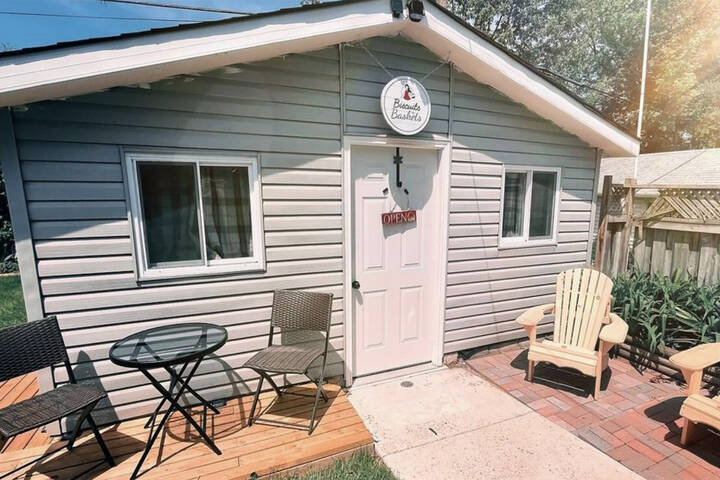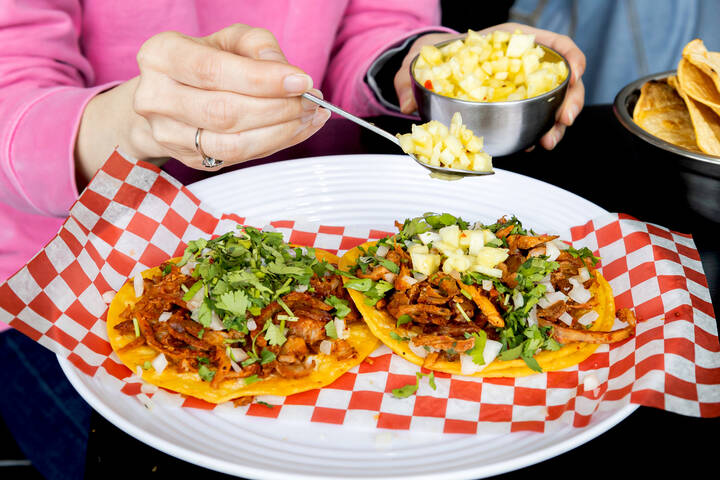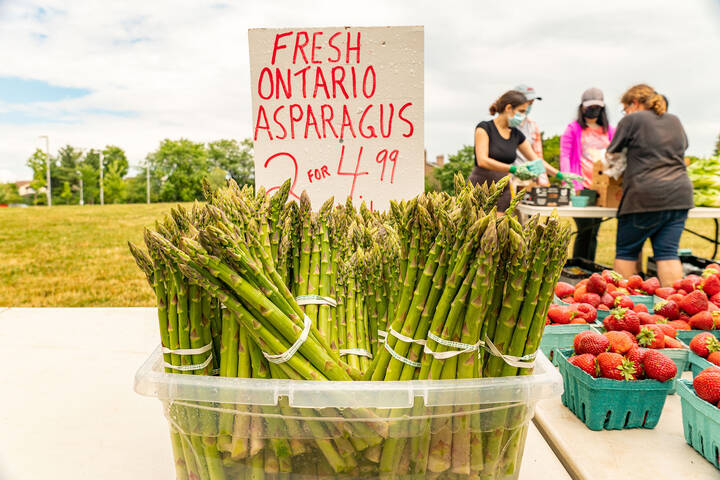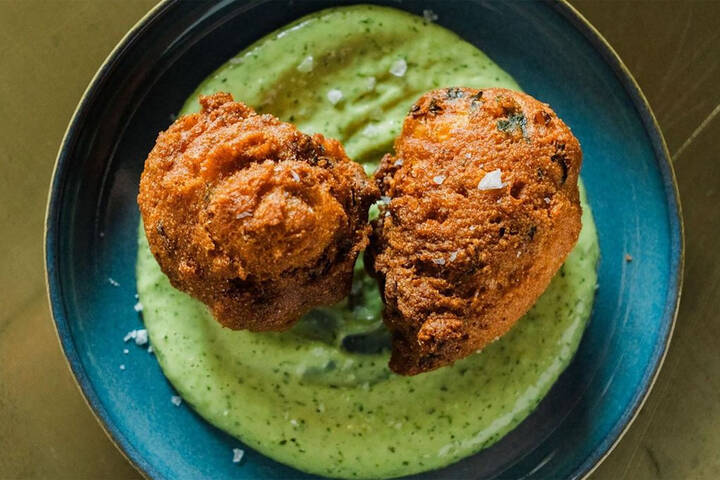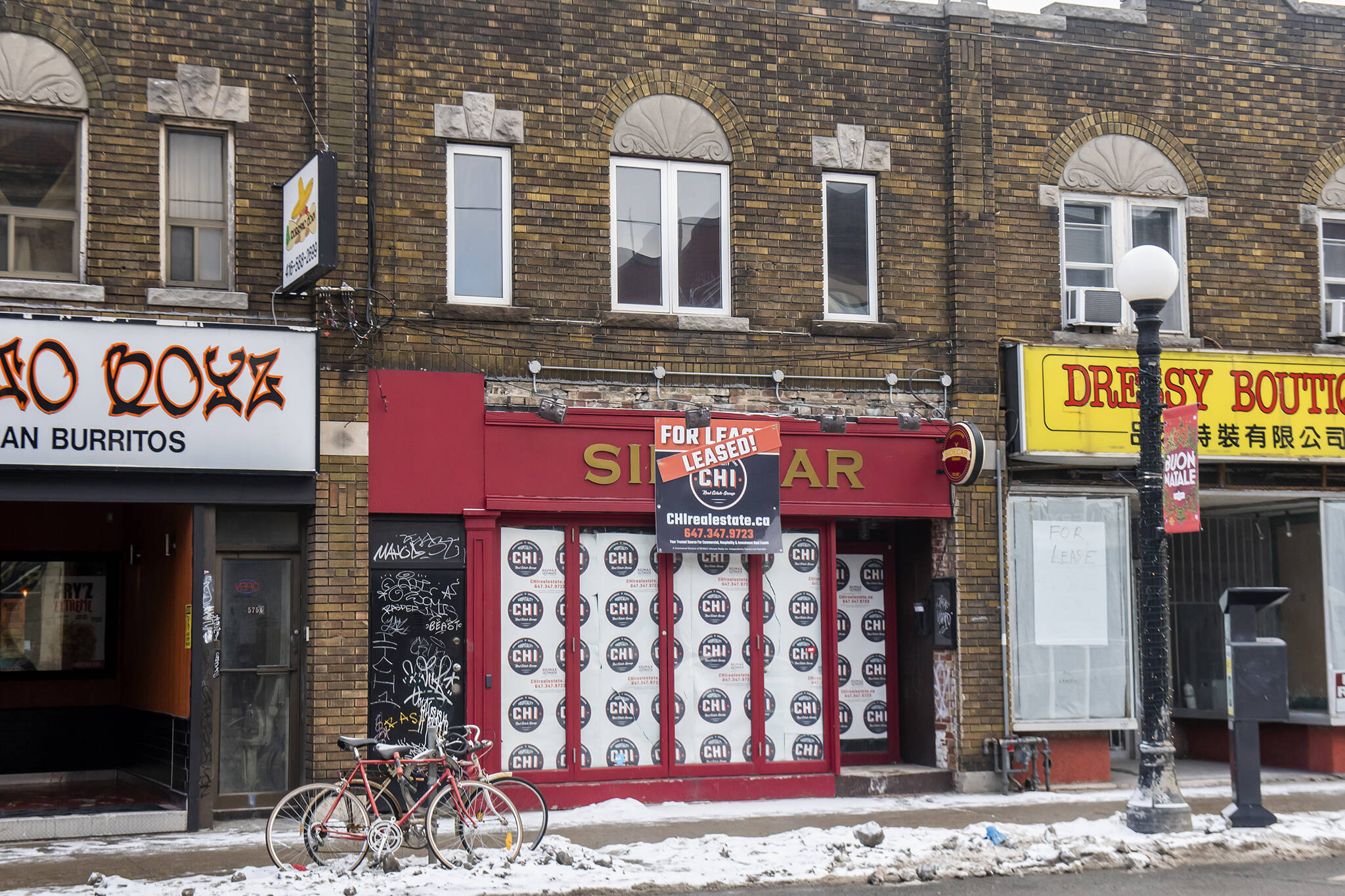
Toronto restaurants are worried about the CEBA repayment deadline
Today is the last day for small businesses — including food businesses in Toronto — to repay their loans under the Canada Emergency Business Account program (CEBA), which were used to support them during COVID-19.
With that comes a lot of fear for what will become of Toronto's food scene — something that The Heartbreak Chef Jerome Robinson says has only recently started to get recognized internationally.
"It seems like the last couple of years is when people were actually starting to pay attention to the food scene down here," he says. "It's one of the top in the world and I think a lot of those mom and pop restaurants are the heartbeat of the city."
"Those mom and pop restaurants" though, are what he believes are going to be most impacted by the CEBA repayments.
"If some of them have to close — which a lot of them are, and have closed during the pandemic — it's sad. Because Toronto is now really starting to get the recognition it deserves when it comes to the food industry."
Small businesses feeling the burn
Jordan Harasinski Gillis, owner of Tokyo Hot Fried Chicken, has the same sentiments.
"Toronto's food scene brings such diversity to it," he says. "Everybody can celebrate anybody's food. It's sad knowing that the underrepresented people are probably going to be the people that are losing the most in this."
Just spoke with a business owner in Toronto:
— Aaron Binder (@theaaronbinder) September 15, 2023
"I'm scrambling NOW to pay off CEBA debt, 18 extra days does nothing. An extra year extension on the forgivable portion means I stay in business and pay down the debt.
I'm pursuing bankruptcy options because 18 extra days is a joke."
It's unsurprising that the food service sector has been one of the most impacted industries affected by the COVID-19 lockdowns.
Restaurants across the country had to close down for months, limit their indoor and outdoor capacities, and pivot to takeout rather than dine-in for long periods of time — all while still having to pay rent and cover the rising costs of food.
The financial situation for a lot of restaurants is still not getting any better either, Harasinski Gillis says.
"Even just from my own experience at my own restaurant, sales are very low compared to year-over-year," he says. "I would say inflation is putting a strap on people being able to go out and enjoy themselves and eat."
Deadline finally here after several extensions
In April 2020, the federal government launched CEBA as an emergency response to small businesses in Canada that were struggling to stay financially afloat. The program provided up to $60,000 in loans to qualified businesses, with the promise that $10,000 to $20,000 of that loan would be forgiven if it was paid back in time.
While the original deadline was set for December 31, 2022, it got postponed twice. The federal government announced last September that January 18, 2024 would be the last day to either pay back the full amount interest-free or to pay back a certain amount of it with the rest being charged interest.
Businesses that cannot pay back in full by January 18 must do so by December 31, 2026 with interest included and will not be eligible to retain the $10,000 to $20,000 in loan forgiveness.
Harasinski Gillis himself took the CEBA loan for Tokyo Hot Fried Chicken and was able to repay it in full this week, which means he's entitled to the loan forgiveness.
Even so, he believes his restaurant will have to recover from the repayment.
"Thankfully we have a pretty strong brand so we are able to keep our sales up, but it does mean that the next couple of months we'll be in overdrive to make sure we keep getting funds coming in properly," he says.
And despite the federal government extending the repayment to 2026, Harasinski Gillis believes that still might not be enough to save restaurants.
"With the extra payments on top, there's a lot of restaurants who are just losing money month over month already," he says. "I think that could be the straw that breaks the camel's back."
More restaurant closures may be coming
A Restaurants Canada survey also shows just how serious the situation is for small food businesses, with one in five restaurants with a CEBA loan being "on the brink closing one or more of their locations."
While Robinson didn't apply for CEBA, he still believes that re-extending the deadline from December 31, 2023 to a few weeks later in January doesn't make the biggest difference for a lot of restaurants in the city.
"Everyone knows that around Christmas time, January, and February are the slowest times in the industry," he says. "Giving them an extra month to pay doesn't do much."
Today is a hard day for many small businesses. CEBA loan repayment is due (despite efforts, the deadline was not extended).
— Bhutila Karpoche (@BhutilaKarpoche) January 18, 2024
Recovery hasn’t been easy. Many are taking out high interest loans to pay back CEBA just to stay open.
Let’s give small businesses our support. #ShopLocal
Ideally, Harasinski Gillis wished that the extension could go on until March or April, but he does acknowledge that the government extended the repayments twice already. "It is what it is," he says.
Now, with the deadline here — and with mom and pop restaurants continuing to close down — the effects of CEBA are already apparent.
"I live in Parkdale and I can see it happening already," Harasinski Gillis says. "There are a lot of chains popping up, like Wendy's and Mary Brown's. It seems we're going to find corporations more prevalent on the streets."
Hector Vasquez
Latest Videos
Latest Videos
Join the conversation Load comments

